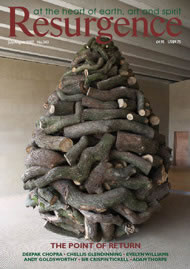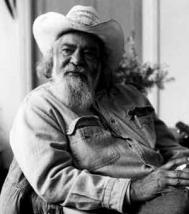Bob Randall was born in 1934 in the Central Desert region of the Northern Territory, Australia. He is a member of the Yankunytjatjara people and one of the listed traditional owners of Uluru (Ayers Rock). At a young age, Bob was taken away from his mother under government policy. He never saw her again. He was sent to a receiving home for indigenous children and he remained in government institutions until he was twenty. While still a teenager, he married Amy, a member of the Amadjera Tribe, who had also been taken from her family.
Bob’s lifelong efforts to re-establish aboriginal rights and culture were recognised in 1999 when he was named Indigenous Person of the Year at the National Aboriginal and Islander Day of Celebration awards.
Bob is the author of two books: his autobiography Songman and a children’s book, Tracker Tjginji, which was part of the 2004 Sydney Writers’ Festival. His most recent collaboration is with film director Melanie Hogan who has produced the compelling film Kanyini, which looks at the world’s oldest living culture and how it has been ravaged by the “whitefella”.
The word Kanyini means responsibility and unconditional love for all of creation and it envelops the four principles of aboriginal life:
Tjukurrpa – Creation Period (or what non-aboriginals call ‘dreamtime’)
Kurunpa – Spirit, Soul, Psyche
Walytja – Family, Kinship
Ngura – Land, Home, Place or Mother
Kanyini is best expressed in English as the combination of the two words ‘responsibility’ and ‘love’, but it is actually a relationship; it is an enormous caring with no limit – it has no timeframe: it is eternal. Our purpose is to live with the Kanyini principles of unconditional, unlimited love. After all, that is what we get from Earth Mother; that is what we get from Sun Mother (female energy) and that is what we get from Moon Father (male energy). They look after everything – in the realm of caring by these two mothers, all are brothers and sisters! It makes everything so easy and so natural.
Of course ‘family’ doesn’t just apply to humans: it applies to all life – our family extends to all species and is inclusive of everything. Our Earth Mother is all of our mothers; we don’t just have one mother – everything is Mother. Earth Mother has a sister, the Sun, and these two are responsible for all beings on Earth, in our way of thinking. When you grow up in that system you feel utterly secure because you belong to all that there is, and all that there is belongs to you.
The four dimensions that embody the principle of Kanyini all have equal importance in our lives. Tjukurrpa – or ‘dreamtime’ – has been handed down to us; it is our Creation Story. Elemental vibrations in the universe initiated the first great beings that sculpted and created the contours of our landscape (for example, in the region of Uluru the snake is very significant) and left specific ‘secret sites’ and ‘open sites’ of intelligence, where the teachings reside. Initiates who have been through rigorous ceremonies and rites hold the teachings from the secret sites and this is restricted information. The teachings are connected to geology and elements and are powerful. They must not be found in the wrong hands. The ‘Keepers’ ensure through their ceremonies that the natural world continues in its sacred state, making life comfortable for all members of the family.
Open sacred sites are places that anyone can connect with, to sing the songs of the family and to share knowledge of culture and place. Then there are ‘gender sites’: because of the energies of certain sites there are places where only men or only women should gather. The family accept that this is not discrimination: it is an understanding that these places hold special energies for specific genders and are to be respected. As a male, I grew up knowing that there were certain places I could not enter: only my sisters could go there with their mothers to learn their stories through the passing down of wisdom. These places complement each other all the time; they are places where the laws of Creation and Nature reside. These laws are passed down to both male and female initiates by the Keepers at these totemic sites. When we walk through the land with our elders, the land is like a book and we are walking through different pages, understanding different aspects of Natural Law.
We believe that at the time of conception each member of the family is given two elements of being: the voice of the super-consciousness, and free will. When we are born, each of us has the choice, at each moment in time, of which voice we are going to listen to, thus determining the course of our lives. If we listen to the voice of free will to the exclusion of our super-consciousness, which is a small, gentle voice, then the ego will lead us to separate from our family and our home. We get to a point where we can no longer hear our own super-consciousness and we are not in balance. The ultimate expression of this imbalance is to take another life for selfish, egotistical purposes. This goes against all principles of Natural Order. This imbalance can affect an individual, a community, a town or a country. Violence and war all start from ignoring the small, soft voice of our super-consciousness. They are the antithesis of the principle of Kanyini where all things are equal and held in the relationship of unconditional love.
When we hold the principles of Kanyini in our hearts and listen to the voice of the super-consciousness, it is a beautiful place to be – because all ‘our’ needs are being met and all ‘their’ needs are being met. The ceremonies are being performed, the songs are being sung and the dances are being danced. All is in harmony and balance.
KURUNPA, OR SPIRITUALITY, is another aspect of Kanyini – it is what you yourself create by what is important to you, what you listen to or read or discover in today’s society. It is your own contribution. You create your own kurunpa – your own personal spirituality – by adhering to those teachings that particularly resonate with you. You grow it and nurture it like a garden. You then have the power to determine your own path and to dwell in the garden of your own joyousness, even in the most difficult times. This is exactly what Jesus, Buddha and all other enlightened beings did – they followed the teachings that resonated with them within the guidance of the natural laws, the super-consciousness and free will. Your personal connection to Kanyini is through your chosen spiritual path. Once again your own decisions can have you in a place of peace and wonderful connections or they can have you in a place of disharmony, of imbalance, of distress.
If you practise kurunpa in the wider context of Kanyini, then you will find yourself naturally in the service of others. Through unconditional love towards all members of your family, you will find yourself creating and widening relationships with humans, with nature, with the universe. It’s a natural thing! And as with all things, the best way to encourage others to live in harmony is by your own example.
Walytja, or family, is related to the heart/stomach area of the body, where the mother contains the child. In our system of family, we don’t connect to the stars like other cultures – we are very Earth-based. A child (or animal or tree) is born to a particular ‘songline’ of the Earth and that is their totemic story for the rest of their life. It is the place where your parents make love and give birth to you. You are automatically connected to that land forever; it energises you; it is your place of creation. Everything in that place has a surname – animal and creature – and you are all one, with the same songline. That is your totem connection.
The family therefore naturally connects to Ngura – land, home, place of residence, Mother Earth. Ngura determines our wholeness of belonging – such a beautiful concept to live by. If you live in relationship with Ngura, it is so magical: you feel so totally blessed. If you want food, you know where to find it because you have a relationship with your place of residence, your Mother Earth, your home. If you need shelter, likewise being in relationship with Ngura means you can find it. It feels so magical, yet it is totally natural. When you want something, Mother knows. Your thought is like a voice saying “I need you”, and you are provided for. This is part of the Kanyini principle. The land is your powerbase. The land is your home.
Everyone needs a connection with the land. Through the land you connect with all your other family members. Trees are our family too! On my travels I meet lots of trees I don’t know, as well as lots of people – but they are all extended family. It is so wonderful to actually know all the beings from your home land, to be in communion with them. That is why the enforced eviction of aboriginal peoples from their land was so destructive to their bodies and souls. Enforced separation creates imbalance. With the majority of humanity living in cities these days, separated from their own songlines, they no longer care what trees are cut down to provide their shelters – because they don’t know them and the trees are no longer family. To us, the wanton destruction of trees is like killing our children. The connection is that deep and that painful.
Trees are so generous. Birds can land on their branches, animals can take their leaves for food, humans can eat their fruit and use their wood when the tree no longer needs it. Trees give us so much. If we take their lives from them, then we have to do it so that the generosity continues. If we build shelters with the wood, share the shelter with others; if we make fires for warmth, invite the whole family. Be generous like the trees. Trees are our greatest teachers.
THE KEY TO aboriginal wisdom is family. Treat every being as you would your mother, your sister, your father, your brother. All creatures – humans and other than humans – are family. That is what has kept aboriginal communities strong, despite all the treatment we have endured. Despite our land being taken from us; despite enforced separation and schooling for our children. The principles of Kanyini have held us strong and will allow us to rebuild our culture now that it is being recognised that that culture has meaning, wisdom and durability. Aboriginals in Australia are the poorest and most powerless of communities – but if we have our families, if we are able to practise Kanyini – we have everything.








